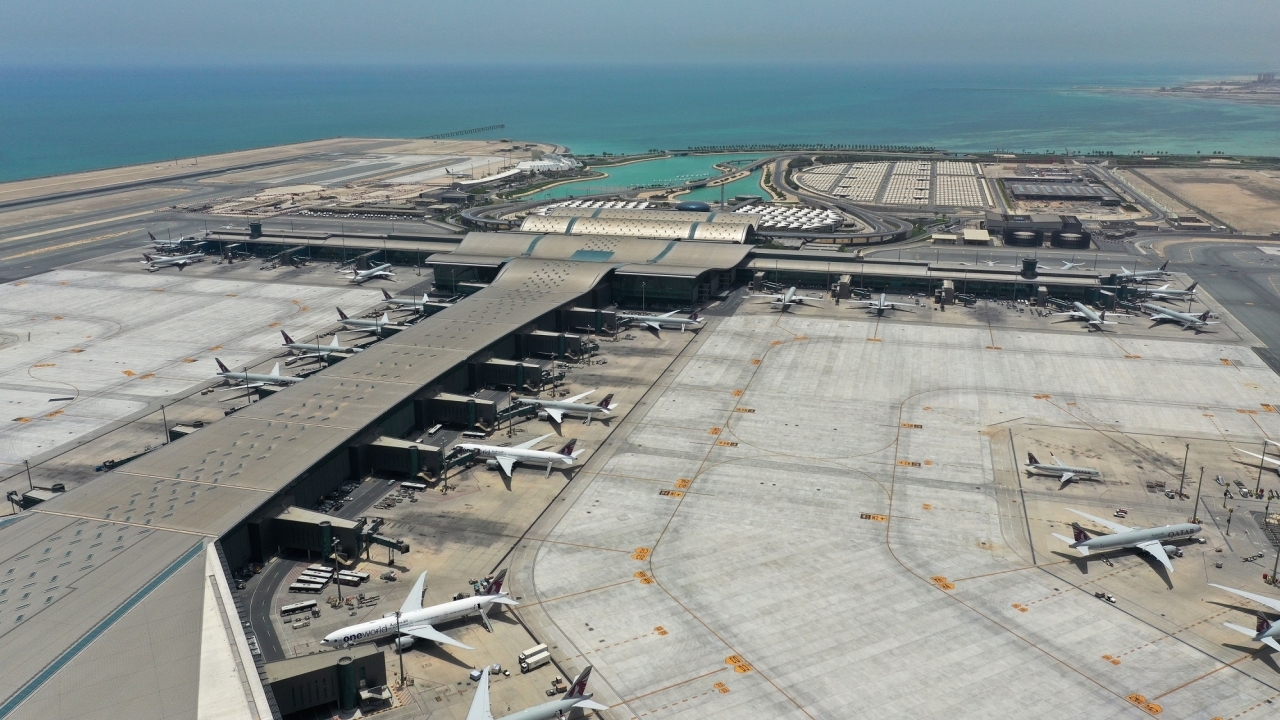Big changes on the way in the post-Covid world
As the airline industry begins to emerge from its Covid-19 hibernation, airports are going to be very different places for the foreseeable future.

The new normal: Thermal screening and social distancing has been put in place at Abu Dhabi International Airport
Some people enjoy airports, most do not. For everyone, however, the next few months – perhaps years – will bring big changes as they navigate from terminal entrance to boarding gate.Alan Dron reports.
Be prepared for longer queues at check-in, security, and passport control, and for greater use of automation, including self-bag-drop and biometric identification techniques, to cut down on the handling of passports.
Those changes may test passengers’ patience, as Dubai Airports’ CEO, Paul Griffiths, told Bloomberg news agency at the height of the pandemic: “Going through an airport, the whole travel experience, will be as enjoyable as open-heart surgery.”
Perhaps acknowledging that passengers and staff will only put up with the irritation of wearing masks and (in the case of staff) cumbersome personal protective equipment (PPE) for a certain amount of time, Griffiths added that these new measures could only be short-term solutions to minimise the chance of infection at airports until a new coronavirus vaccine is distributed globally.
Airports throughout the Gulf have put in place a range of measures to help prevent the spread of the virus and – importantly – give potential passengers confidence that they can travel safely again.
Emergencies often encourage the emergence of new technologies. Abu Dhabi Airports, for example, has partnered with Tawazun Strategic Development Fund to launch the new CoDi BOT unmanned ground vehicle (UGV).
The CoDi BOT, designed and built by UAE-based Marakeb Technologies, is a multi-purpose cleaning vehicle. It uses bursts of ultraviolet rays to sterilise hard surfaces, screens people through thermal infrared monitoring, and also disinfects areas with liquid cleaning agents. It was being trialled in the airport terminal, cargo and staff areas from May.
The UGV is remotely controlled, using real-time video and a high-speed data connection.
It is being operated alongside a range of what have become common preventative measures, including thermal screening, nasal swabbing, and polymerase chain reaction (PCR) testing to detect anyone with the virus.
“Abu Dhabi International Airport has implemented a range of special measures across its cargo and passenger operations, including workforce cluster management, thermal imaging cameras at key transit areas, free Covid-19 tests for passengers and employees, and roster re-alignment,” said Abu Dhabi Airports acting deputy chief operations officer, Waleed Salem Al Hemeiri.
Bahrain International Airport (BIA), meanwhile, has implemented all necessary health and safety measures to protect the wellbeing of passengers and staff.
BIA is now in the final stages of transferring operations to the new passenger terminal building, a state-of-the-art facility that will enhance the travel experience and increase the airport’s capacity to 14 million passengers a year. The existing terminal’s capacity is four million.
“Since the start of the pandemic, Bahrain Airport Company (BAC) has implemented all the precautionary measures recommended by the authorities to ensure the health and safety of passengers and staff, and the protection of public health in the kingdom, and in support of the airport’s role in facilitating repatriation flights,” said BAC CEO, Mohamed Yousif Al Binfalah.
“With these additional measures in place, we are in a stronger position to fully resume operations safely and effectively.
“We are taking careful steps in collaboration with our partners to help get the kingdom’s aviation sector up and running again through maintaining social distancing measures, implementing enhanced sanitisation and hygiene standards, thermal screening, and mandating PPE as key pillars to achieving this goal.”
Like many aviation professionals, Al Binfalah believes that international harmonisation of new regulations will be important in encouraging passenger flows again.
“There’s an opportunity for concerted efforts to be coordinated at a regional level to establish a set of mutually harmonised guidelines that will enable us to overcome our shared challenges during these unprecedented times, restore confidence and reimagine the travel experience again,” he said.
With the right measures in place, hopefully Paul Griffiths’ predictions of open-heart surgery will be downgraded to a minor procedure.
Stay up to date
Subscribe to the free Times Aerospace newsletter and receive the latest content every week. We'll never share your email address.

